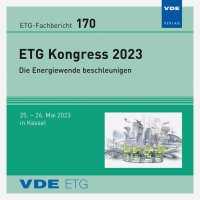Robust and Sensitive Aspects in a Decarbonised Energy System Regarding Energy Imports
Konferenz: ETG Kongress 2023 - ETG-Fachtagung
25.05.2023-26.05.2023 in Kassel, Germany
Tagungsband: ETG-Fb. 170: ETG Kongress 2023
Seiten: 6Sprache: EnglischTyp: PDF
Autoren:
Savvidis, Georgios; Lotze, Jonas; Moser, Massimo; Brenneisen, Olaf (TransnetBW GmbH, Stuttgart, Germany)
Inhalt:
The risks associated with global warming force us to decarbonise our energy systems. Sector coupling is a key approach for utilising synergies to reduce resource intensity and increase cost-efficiency. We used an energy system model which endogenously co-optimises the electricity, heating, transport, gas and industry sectors to assess two different scenarios for a European energy system with net zero CO2 emissions. We highlight the impact of a hypothetical foreign policy on the energy system, where energy imports must come from diversifiable sources to reduce import dependencies on single stakeholders. The results show that primary energy consumption changes notably, but not all member states of the EU27 are affected equally. This scenario-based analysis provides an insight into the role of hydrogen, which not only serves as an energy carrier in the studied sectors but is also a valuable flexibility option for the electricity sector. Significant electrolyser capacity is necessary in both scenarios, even when relatively cheap hydrogen from northern Africa and Russia is available via pipeline. Significant expansion of electricity interconnection capacity is necessary in both scenarios.


